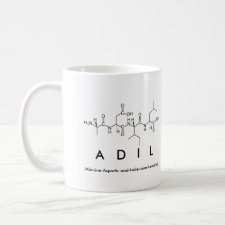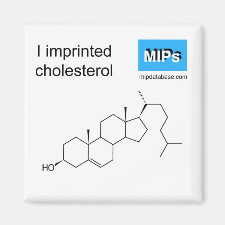
Authors: Inanan T, Tüzmen N, Akgöl S, Denizli A
Article Title: Selective cholesterol adsorption by molecular imprinted polymeric nanospheres and application to GIMS.
Publication date: 2016
Journal: International Journal of Biological Macromolecules
Volume: 92
Page numbers: 451-460.
DOI: 10.1016/j.ijbiomac.2016.07.007
Alternative URL: http://www.sciencedirect.com/science/article/pii/S0141813016307127
Abstract: Molecular imprinted polymers (MIPs) are tailor-made materials with selective recognition to the target. The goals of this study were to prepare cholesterol imprinted polymeric nanospheres (CIPNs) and optimize their adsorption parameters and also to use CIPNs for adsorption of cholesterol (CHO), which is an important physiological biomacromolecule, from gastrointestinal mimicking solution (GIMS). Pre-polymerization complex was prepared using CHO as template and N-methacryloylamido-(l)-phenylalanine methyl ester (MAPA). This complex was polymerized with 2-hydroxyethyl methacrylate (HEMA). CHO was removed by MeOH and tetrahydrofuran (THF). Adsorption studies were performed after chacterization studies to interrogate the effects of time, initial concentration, temperature, and ionic strength on CHO adsorption onto CIPNs. Maximum adsorption capacity (714.17 mg/g) was higher than that of cholesterol imprinted polymers in literature. Pseudo-second-order kinetics and Langmuir isotherm fitted best with the adsorption onto CIPNs. 86% of adsorbed cholesterol was desorbed with MeOH:HAc (80:20, v/v) and CIPNs were used in adsorption-desorption cycle for 5-times with a decrease as 12.28%. CHO analogues; estron, estradiol, testosterone, and progesterone were used for competitive adsorption. The relative selectivity coefficients of CINPs for cholesterol/estron and cholesterol/testosterone were 3.84 and 10.47 times greater than the one of non-imprinted polymeric nanospheres (NIPNs) in methanol, respectively
Template and target information: cholesterol, CHO
Author keywords: cholesterol, biomacromolecule, imprinting, Gastrointestinal mimicking solution, selectivity



Join the Society for Molecular Imprinting

New items RSS feed
Sign-up for e-mail updates:
Choose between receiving an occasional newsletter or more frequent e-mail alerts.
Click here to go to the sign-up page.
Is your name elemental or peptidic? Enter your name and find out by clicking either of the buttons below!
Other products you may like:
 MIPdatabase
MIPdatabase









